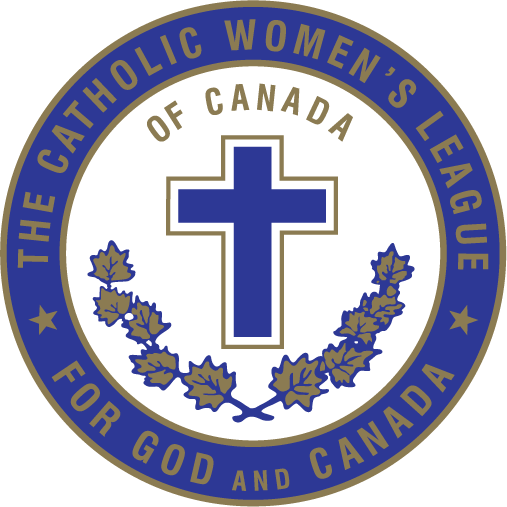Rolande Chernichan
Manitoba Provincial Council President
2017 Annual Report
Manitoba’s 2,200 plus members within three dioceses have been afire in response to the national theme, Inspired by the Spirit, Women Respond to God’s Call. The St. Boniface Diocesan Council president is in the second year of her term. Winnipeg Diocesan Council welcomed a new president following elections in 2017. The northern diocesan council of Keewatin-The Pas is led by the past-president who also serves as acting president. Twenty-seven of 47 parish councils participated in online annual reporting. This report is a glimpse of activities and good works by members in Manitoba in 2017.
Winnipeg Diocesan Council’s fall meeting and workshop featured a speaker on formation of priestly vocations, presentation about electronic reporting and leadership training for treasurers. St. Boniface Diocesan Council’s Day of Reflection featured the founder of Open Doorways Orphanage in Haiti, which is supported by parish councils. Keewatin-The Pas Diocesan Council featured a full day workshop on “The Bible and the Virgin Mary Journey Through Scripture”.
Parish council presidents informed members of the League’s position on current issues, priorities and new programs primarily from The Canadian League magazine, national communiqués, diocesan newsletters and the national website. National priorities introduced included physician assisted dying (100%), palliative care (88%) and conscience rights of healthcare providers (76%). These topics were presented at general meetings, through standing committee chairpersons and through guest speakers. Members participated in letter-writing campaigns and signed petitions in support of conscience rights of healthcare workers. Parish councils responded enthusiastically to the lap quilt/blanket project and participated in “12 Hours of Prayer for Palliative Care”.
Over one-half of parish council presidents met with the spiritual advisor monthly; one-third rarely met with him. Most (88%) reported the spiritual advisor is supportive of the League; offset by pastor disinterest or lack of a parish priest. Diocesan presidents met and communicated with bishops less frequently. One diocesan council hosts an annual pot-luck dinner with its bishop.
Resources used by presidents included Robert’s Rules of Order (73%), council policy and procedure manual (73%), Constitution & Bylaws (69%), and National Manual of Policy and Procedure (53%). Members appreciated online access to League resources. The Executive Handbook read by most presidents, assisted in the responsibility of overseeing council operations. They sought direction about how to deal with executive members who didn’t fulfill their duties.
Presidents represented parish councils at diocesan meetings and conventions (96%), church functions (92%) and funerals (76%). Provincial meetings/conventions were attended by fewer than one-half and were not fully subsidized by the council; one-half who attended diocesan convention had their expenses paid fully. Surprisingly, workshops and conferences were attended by more presidents than those who attended provincial convention, despite all expenses not being paid for almost half of them. Fewer than half who attended provincial convention had all expenses paid. Members were encouraged to attend League development events, leadership training, workshops, conventions and retreats; however, participation was low. Reasons are many and varied. It appears members lacked understanding of the importance of active participation in League events beyond the parish level. Financial support to fulfill presidential duties could be improved.
One-half of parish councils had committees for annual events such as teas, bazaars and fundraising; others had committees for scholarship/bursary, social events and visitation. Councils initiated or added policies to their manual namely: award recipients, expenses, funeral/honour guard protocol, funeral lunch, financial audit date, recurring donations, mass stipends, spiritual content in meetings, honorariums, membership of older members and financial commitments.
Most presidents provided an annual summary of council activities to members through e-mail or newsletter (42%), and by oral report at annual meeting (34%). Minutes and chairperson reports were most valuable in completing annual reports. Presidents were the official spokesperson for the council concerning palliative care (57%), membership (50%), local charitable projects and euthanasia. League letterhead was used when corresponding outside of the League; almost all reference only the membership total for the council they represent in external correspondence. Most presidents signed cheques on behalf of the council, as well as banking documents and letters within the League.
The greatest challenges faced in transitioning into the role of president included recruiting (65%), incomplete slate of officers (53%), keeping members interested (53%), amount of paperwork (50%) and finding the time (46%). One-quarter reported being challenged by technology. Over one-half received the greatest assistance from a former past president; additionally from the immediate past president, the current executive and diocesan level. Ten parish councils had a life member from whom they could receive guidance, mentoring and support in various ways. There also were 16 Bellelle Guerin recipients who freely step forward to assist wherever needed.
Most parish councils found it beneficial having a national theme and/or logo as a focus for activities. Inspired by the Spirit, Women Respond to God’s Call was explored through spiritual programs, prayers and workshops.
Members sought spiritual development by participating in Rites of Christian Initiation of Adults classes, study of the bible, saints and Catholic teachings; and prayer initiatives for World Day of Prayer and Christian Unity Week. Online and printed League resources were used frequently. Members served in ministries of the mass, as lay presiders, as catechists, in faith formation and sacramental preparation, leading small prayer groups and leading the rosary. Masses were prayed to the intention of councils and deceased members. Members of the north accompanied the priest to outlying parishes when needed. Ecumenical in their outreach, when a local church had closed down, they invited the community to join them in Sunday prayer.
Organization chairpersons promoted recruitment with positive results; personal contact and support of the spiritual advisor was key to recruitment. Elderly members, no longer able to participate, were kept abreast of League happenings by invitations to events, newsletters and/or minutes. They received phone calls, cards and notes, personal visits, communion and even baking! Parish councils reported affirming and honouring members through the Bellelle Guerin award, certificates and making use of the League’s incremental years of service pins. A 65-year pin was awarded to a charter member. Prayer councils endeavoured to stay connected with the League and do good works in the community.
Members sourced The Canadian League and communiqués for information about Christian family life. They watched daily televised mass and attended Chrism Mass and other special masses. Councils supported daily praying of the rosary on radio through the sale of angel ornaments. Members participated in pro-life events and the annual March for Life, and supported fundraising events of pro-life organizations. They did visitation ministry to homes, senior manors and hospitals and compassionate ministry through mass cards on special birthdays and anniversaries or the loss of a loved one. Diocesan priestly vocations were supported by financial donations and prayers. Councils organized screenings of Euthanasia Deception, and promoted NET Ministries of Canada, Catholic youth camps and World Youth Day in Panama City, Panama in 2019.
Through community life initiatives, parish councils sponsored a child through Chalice, Plan International and similar agencies. They donated money and food for hampers and food banks, and filled shoeboxes for Samaritan’s Purse. Donations were made to Catholic Missions In Canada, Catholic Near East Welfare Association, Canadian Catholic Organization for Development and Peace (CCODP) and several other agencies. Used stamps were collected for CCODP and members contributed to the 1% national voluntary fund program. Pop can tabs were collected for the wheelchair project. Members helped out at soup kitchens. Councils partnered with Knights of Columbus to co-host parish events. Members supported the Legion poppy campaign, participated in Remembrance Day services and showed support of Canadian troops by wearing red on Fridays.
Education and health information to members included chemical and environmental sensitivities, obesity, blood types, increase of sexually transmitted infections in retirement communities and lack of counselling, genetically modified foods, unfair marketing practises, labelling on food and drug products, new rules for blood donations, and the difference between right and left thinking. Many parish councils awarded scholarships to high school graduates and donated to Coady International Institute. Councils financially supported Canadian Cancer Society, Canadian Red Cross, MaterCare International and the Heart and Stroke Foundation of Canada. Councils acted on Resolution 2016.02 Eating Well with Canada’s Food Guide and Resolution 2015.01 Increased Early Access and Intervention to Children and Youth Mental Health Services.
Communication between all levels continued to be a challenge. Many councils used phone trees to relay information. Diocesan presidents were the valuable link to transmit information from national and provincial levels to parish councils. Councils used parish bulletins, radio, local newspapers and personal invitation to promote events. Newsletters were circulated primarily by e-mail. Councils submitted to government the Pornography Hurts postcards calling for mandatory age verification mechanisms for adult pornographic websites.
There was interest in resolutions in all three dioceses. Manitoba’s resolution on multiple chemical sensitivity and environmental sensitivities was circulated nationally via education and health chairpersons for awareness and education. Fifty percent of parish councils reported members wrote to government. A legislation educational booklet about how bills are developed and processed by governments was circulated to all parish councils.
Other council initiatives included hosting Citizen Court for new immigrants and annually fundraising for a ‘mercy fund’ donated to the parish for those seeking help. Prayer councils remained involved in the parish/community, socialized and maintained League visibility.
Councils reported concerns of being elderly, not having fluent English speaking/writing skills, not having computer skills, having difficulty to fill president/executive positions and to organize events/fundraisers. Having to respond in the negative to the annual survey leaves councils feeling not having accomplished much.
Insightful comments from members:
• Canada’s 150th birthday was occasion to pray the League Prayer 150 days preceding Canada’s birthday, be torch bearers, donate 150 school supplies to a drop-in centre, donate 150 notebooks and pencils to the Mennonite Central Committee, participate in a living flag photo shoot, make a financial donation to an immigrant family, and host citizenship ceremonies.
• Members found the resolutions dialogue at national conventions educational and informative. They planned to continue attending but recommended more time for discussion.
• Diocesan presidents were invaluable; they worked tirelessly to promote the League, keeping membership informed and encouraging participation in League events.
Manitoba Provincial Council hosted its annual Day of Celebration featuring a workshop by National President Margaret Ann Jacobs on the theme. The day included interviews with four life members based on the television program The View.
The provincial convention hosted rurally featured a historical tour of the town. The keynote speaker spoke passionately about her work with homelessness and poverty; food items brought to convention were donated for the cause. The national theme was explored through a workshop. Following elections, the new executive and new spiritual advisor were installed.
Resolutions workshops have been offered annually for over ten years. A workshop about legislation, held in conjunction with the resolutions workshop, culminated in letter-writing in response to Resolution 2017.04 Protection from Coercion of Conscience for Healthcare Professionals.
Parish councils are the “heartbeat of the League” as women continued to respond to their faith through involvement in the League. Bravo for the dedication and engagement by members despite the challenges! They have participated in the ‘leap of faith’ taken by the League through strategic planning and ongoing consultations that will help shape its future. The future of the League beyond its centennial in 2020 looks bright. Through the intercession of Our Lady of Good Counsel, and inspired by the Spirit, women will continue to respond to God’s call. May they, in turn, be inspiration to others to respond in the same way!


